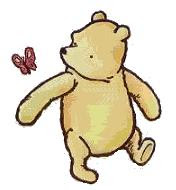In chapter six, Lazzaro has sworn to have the Englishman who punched him killed after the war. This also leads to Lazzaro stating matter-of-factly that he would also have Billy killed. Billy agrees, unconcerned, that this is a true statement of how he will die in the future. I find it quite interesting that Billy knows how he is going to die, and is pretty content with the outcome. Moving on, Lazzaro, Derby and Pilgrim all join the rest of the Americans in the theater. An Englishman gives a speach about hygene, which none of them take seriously at all. After the Englishman had given his lecture, he states, ironically, that he is envious of the American's opportunity to go to Dresden. He describes it as a beautiful city. This is ironic, because Dresden will be bombed later on, and turned into a disastrous and wrecked city. A product of the war.
When it was time to go to Dresden, all of the Americans felt pretty content. They were able to hold their food, and apparently, Dresden was very safe from the War. According to Edgar Derby's imagined letters to home, Dresden would never be bombed. Irony, once again.
The author then uses the colors "blue and ivory" (188) to describe the feet of the dead hobo. Somebody had taken his shoes, and he was "nestling with thin air and cinders", seeing as no one else was there. Does this possibly have a significance? Blue and ivory seems to be a favorite description, that the author uses frequently. In chapter four, Billy's own feet are described as ivory and blue. Perhaps this is also foreshadowing.
When the American soldiers arrive in Dresden, they are met with soldiers as pitiful as themselves. After being brought to their new 'home', their are told to remember their address, in case they ever lost in the big city. "Schlachthof-funf" (195), or in English, Slaughter House Five.
Saturday, September 19, 2009
Subscribe to:
Post Comments (Atom)

No comments:
Post a Comment